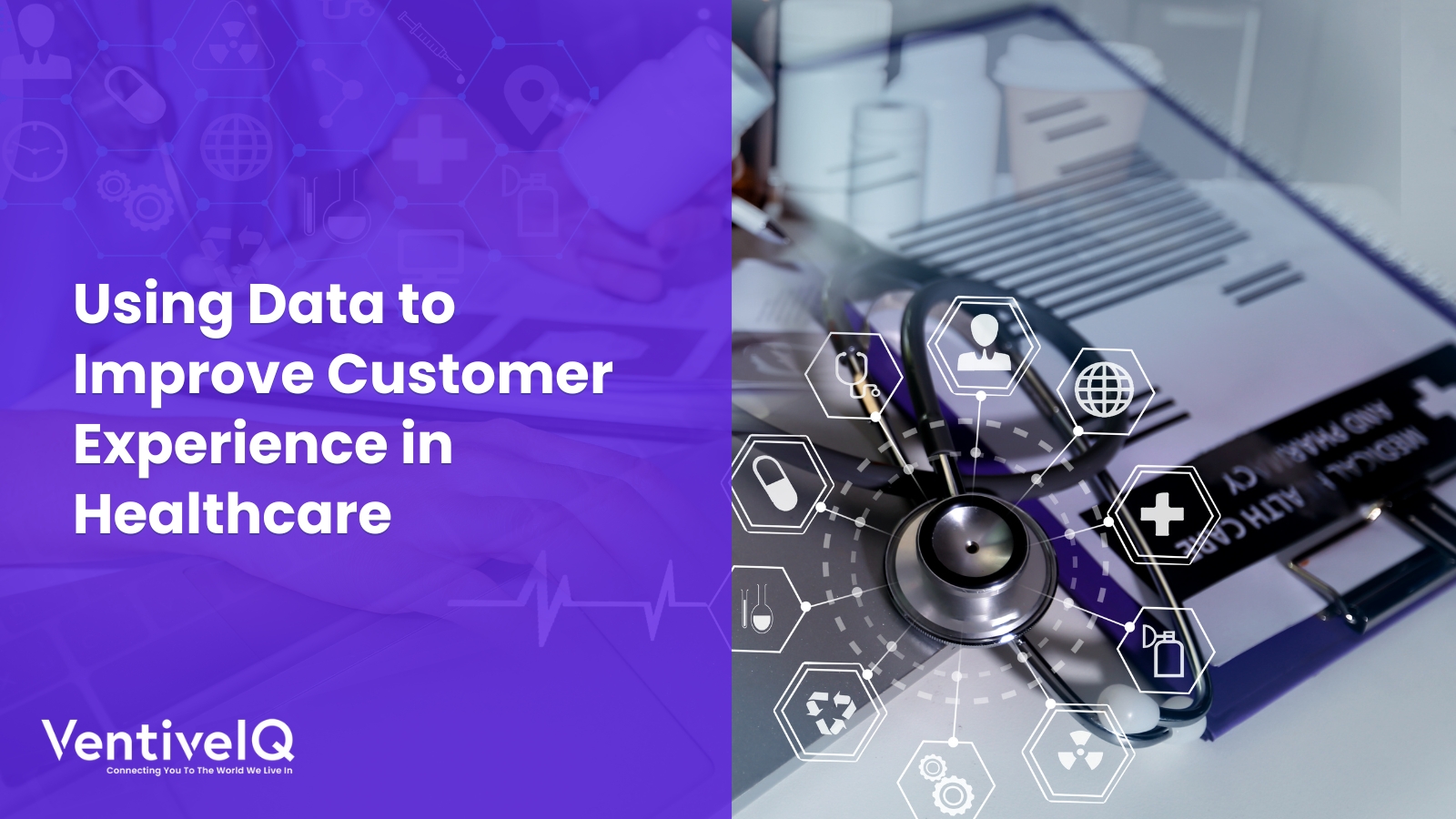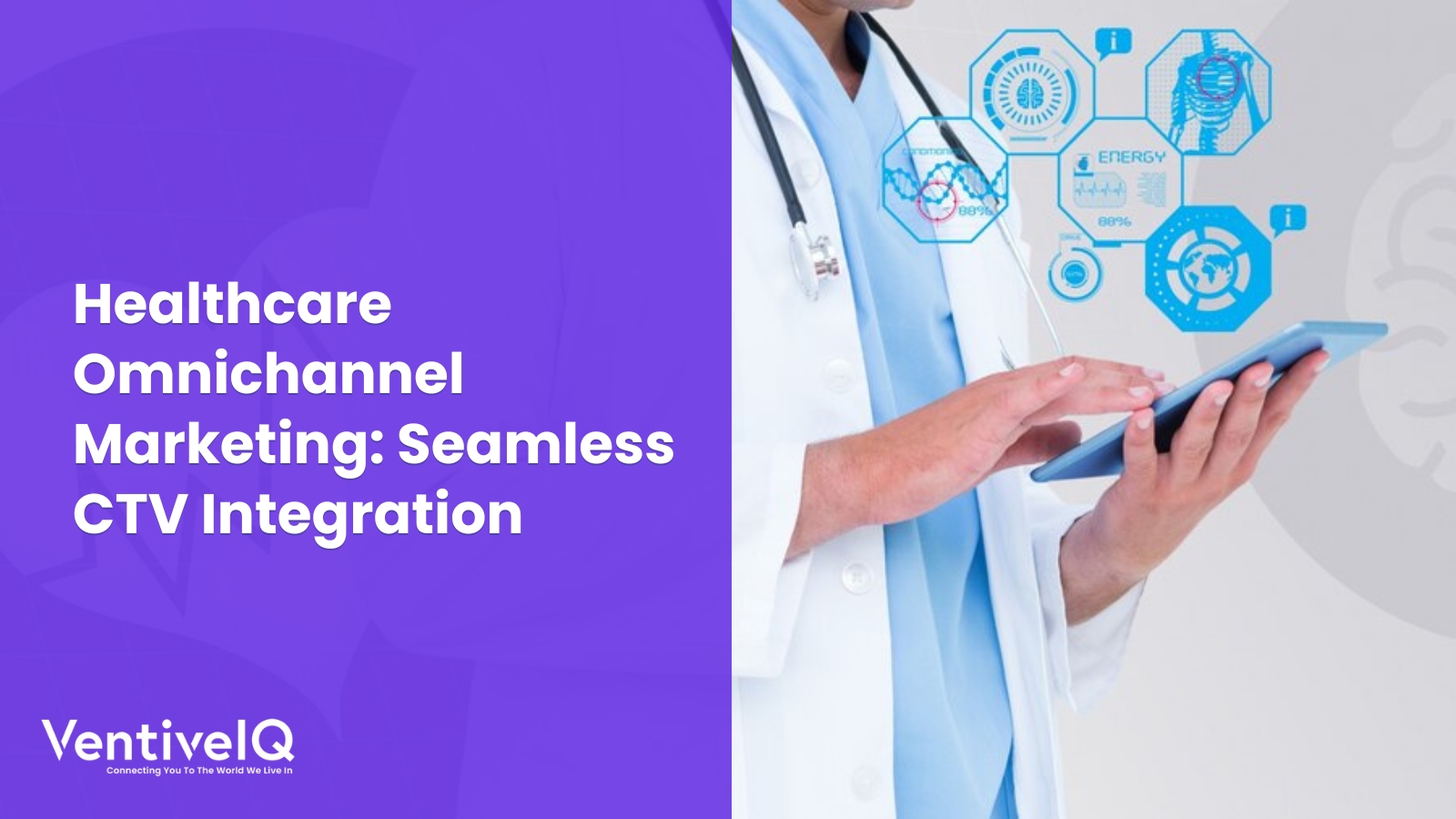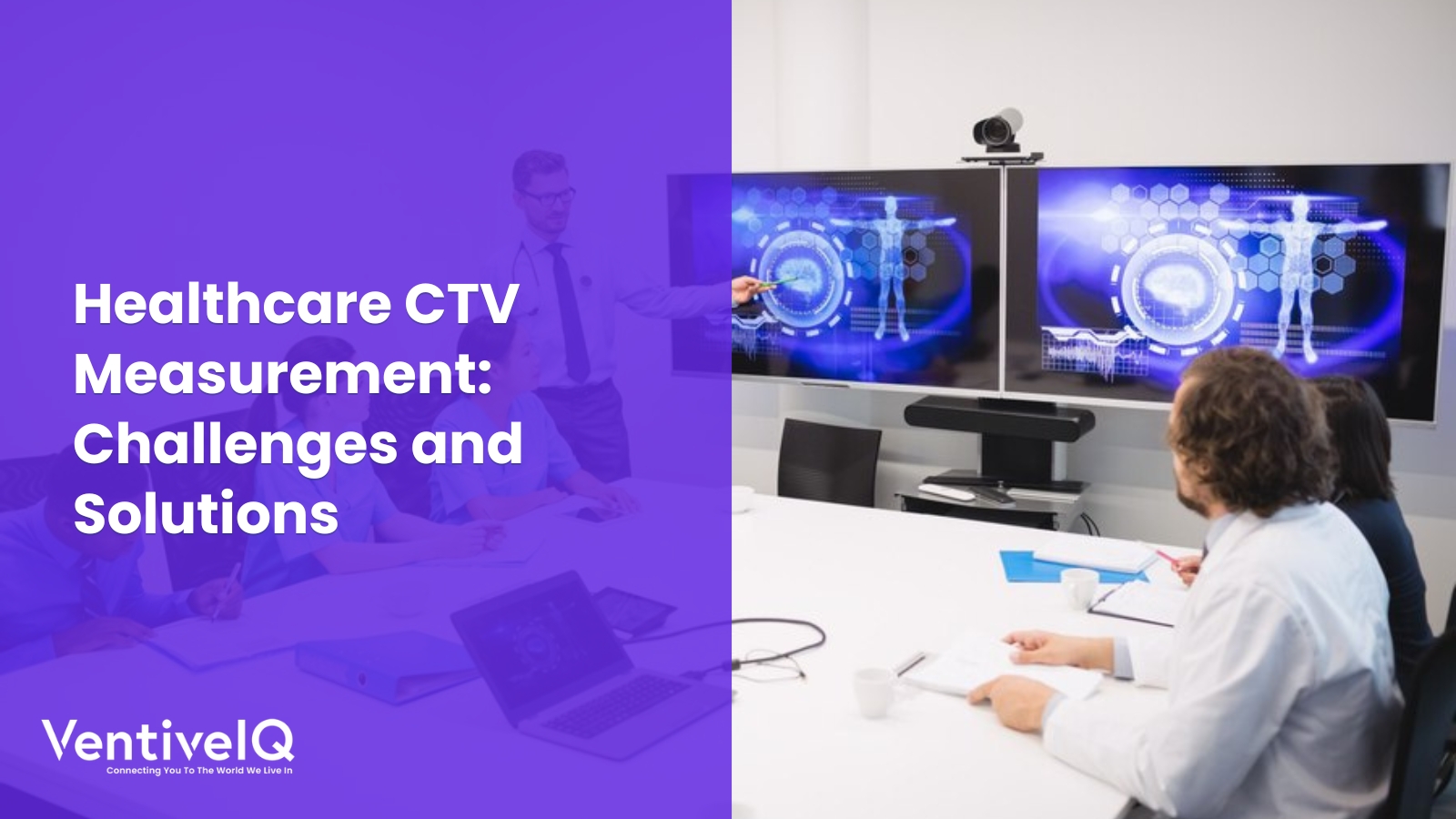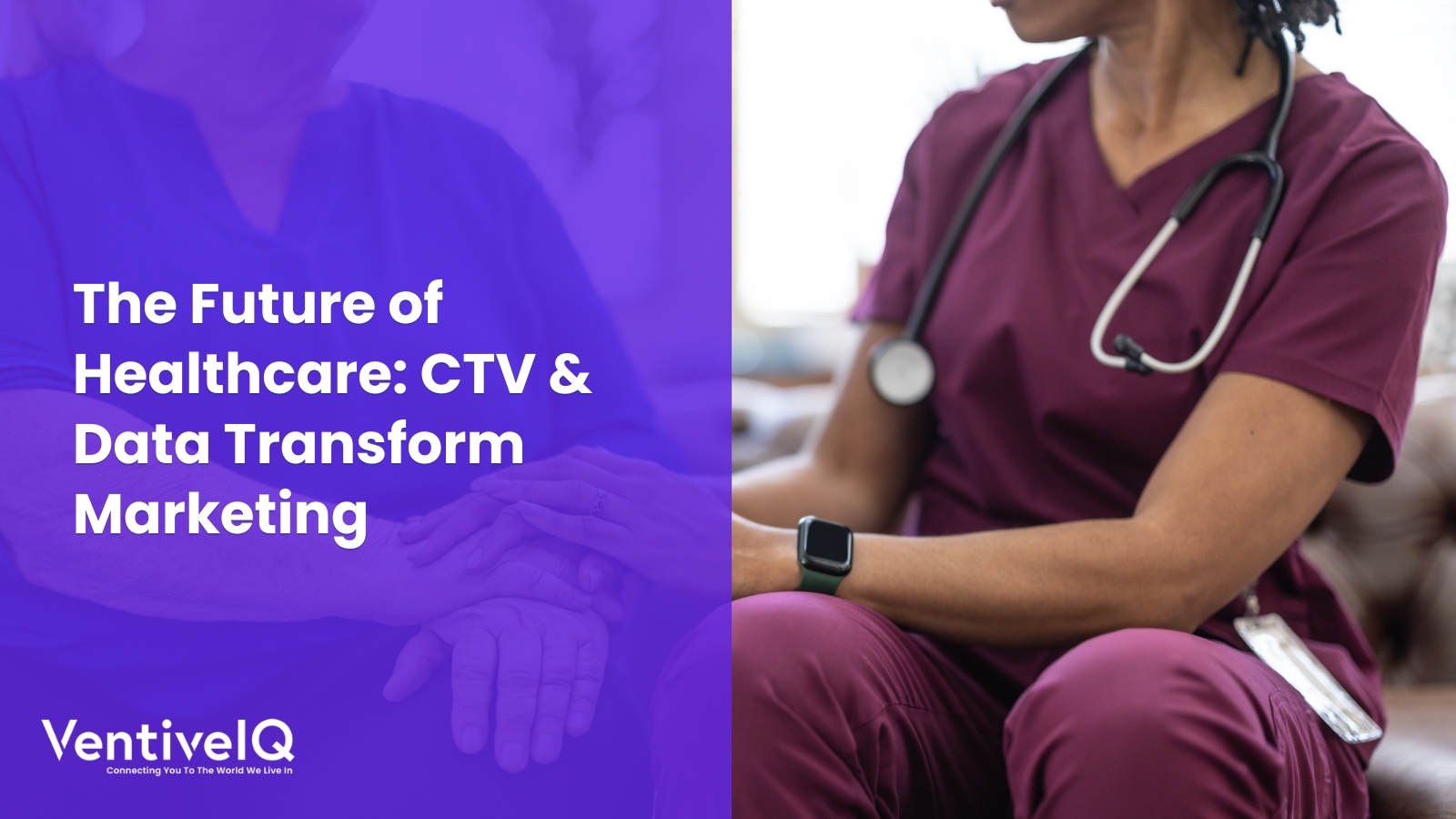Discover how data analytics can revolutionize the patient experience in healthcare, including key factors, challenges, and strategies to enhance healthcare marketing.
Introduction
In this data-driven era, healthcare is one sector that stands to benefit significantly from data analytics. By utilizing data analysis, healthcare providers can make significant strides in improving Customer satisfaction and overall Customer experience. For many healthcare providers, this is still uncharted territory.
However, VentiveIQ is dedicated to transforming the healthcare landscape by facilitating the effective use of data to improve customer experience in healthcare.

The Power of Data in Healthcare
Traditionally, healthcare has been provider-centric, with a focus on clinical excellence. However, the tide is turning. Customers are increasingly demanding personalized experiences, convenience, and clear communication. Data analytics bridges this gap by providing valuable insights into Customer behavior, preferences, and needs.
Unlocking the Potential: Key Factors in Data-Driven Patient Experience
1. Personalized Care
Data analytics can be used to tailor care plans to individual patient needs. Analyzing a patient’s medical history, medications, and lifestyle choices allows for a more targeted approach. Imagine a scenario where a patient with a chronic condition receives reminders for preventive measures and medication adherence based on their situation.
Balancing Act: Privacy vs. Personalization
However, a crucial balance must be struck between personalization and patient privacy. Healthcare providers must ensure patient data is anonymized and secured by HIPAA (Health Insurance Portability and Accountability Act) regulations. Transparency in data collection and usage is essential to building trust with patients.
2. Proactive Communication
Data analytics can predict potential health issues and identify at-risk patients. This allows for proactive communication and preventative care measures. For example, a patient with a family history of a specific condition could be flagged for early screening based on their data profile.
Challenges and Considerations: Actionable Insights
The challenge lies in translating insights into actionable communication. The data must be presented clearly, concisely, and easily understandable by patients. Furthermore, healthcare providers must consider the preferred communication channels – email, text messages, or patient portal updates – to ensure optimal patient engagement.
3. Streamlining Patient Journeys
Data can be used to identify bottlenecks in the patient’s journey, such as long wait times or cumbersome appointment scheduling processes. Healthcare providers can optimize scheduling systems by analyzing appointment patterns and patient feedback to minimize wait times. Additionally, self-service options for appointment booking and prescription refills can be implemented based on patient preferences identified through data analysis.
Tradeoffs and Considerations: Efficiency vs. Human Touch
While data-driven streamlining can improve efficiency, it is crucial not to lose the human touch entirely. Patients still value personalized interactions with their healthcare providers. The right balance between data-driven efficiency and human interaction is vital to a positive patient experience.
4. Targeted Healthcare Marketing
Data analytics is a potent tool for healthcare marketing. Healthcare organizations can deliver targeted marketing messages that resonate with specific patient groups by understanding patient demographics, health needs, and communication preferences. This allows for more effective promotion of preventative care programs, new treatment options, or wellness initiatives.
Ethical Considerations and Transparency: Responsible Marketing
However, data-driven healthcare marketing needs to be approached ethically. Targeting patients based on vulnerabilities or health conditions is not acceptable. Once again, data collection and usage transparency are paramount to building patient trust.

Data Analytics: A Game Changer in Healthcare
The potential of data analysis in healthcare is boundless. It can provide insights into patient behavior, reveal patterns in patient symptoms, predict potential health risks, and provide actionable insights for healthcare providers.
Data analytics can also help healthcare providers reduce wait times, improve service delivery, and streamline operations. By analyzing patient flow data, healthcare providers can identify bottlenecks that cause long wait times and address these issues promptly.
Moreover, data analysis can help healthcare providers identify the most effective treatment options for patients. By analyzing patient data, healthcare professionals can predict which treatments will be most effective for a patient. This not only improves patient satisfaction but also reduces the cost of healthcare delivery.
Furthermore, data analysis can help healthcare providers design personalized patient communication messages. This can enhance patient engagement and improve patient satisfaction. Healthcare providers can use data to understand the preferences and needs of each patient and design communication messages that resonate with each patient.
The Importance of Data-Driven Decisions
The shift towards a data-driven approach in healthcare has its challenges. However, the potential benefits for patient experience and healthcare outcomes are undeniable. By leveraging data analysis responsibly, healthcare providers can:
- Improve patient satisfaction: A positive patient experience leads to higher satisfaction scores and better healthcare outcomes.
- Increase patient engagement: Data-driven communication fosters a partnership between patients and their healthcare providers.
- Optimize resource allocation: Data insights allow for better resource allocation, improving efficiency and lowering healthcare costs.
VentiveIQ: Empowering Healthcare Organizations with Data-Driven Insights
VentiveIQ empowers healthcare organizations to unlock the transformative potential of data. As a leading data provider company, VentiveIQ offers a comprehensive suite of data solutions specifically tailored to the healthcare industry. These solutions enable healthcare organizations to:
- Gain a 360-degree view of their patient population: VentiveIQ’s data sets provide insights into demographics, health history, treatment patterns, and social determinants of health.
- Identify at-risk patients: Proactive healthcare management is vital to improving patient outcomes. VentiveIQ’s data analysis can help identify patients at risk for chronic diseases or complications, enabling early intervention and preventive care initiatives.
- Optimize marketing campaigns: Healthcare organizations can develop targeted marketing campaigns that resonate with specific patient segments by leveraging patient data.
- Improve operational efficiency: Data analysis can help identify inefficiency in patient workflows, leading to improved scheduling, appointment management, and resource allocation.
- Measure the impact of patient experience initiatives: Quantifying the impact of data-driven strategies is essential. VentiveIQ’s data solutions enable healthcare organizations to track key performance indicators (KPIs) such as patient satisfaction scores, readmission rates, and adherence to treatment plans.

Conclusion
In a healthcare landscape characterized by increasing competition, improving patient experience is not just a nice-to-have but a must-have. Data analysis is a game-changer in this regard. It provides actionable insights that healthcare providers can use to enhance patient experience and improve patient satisfaction.
VentiveIQ is at the forefront of this revolution. Through its sophisticated data analytics solutions, VentiveIQ is helping healthcare providers leverage data to improve customer experience in healthcare. VentiveIQ is set to transform the healthcare landscape with its commitment to excellence and innovation.



